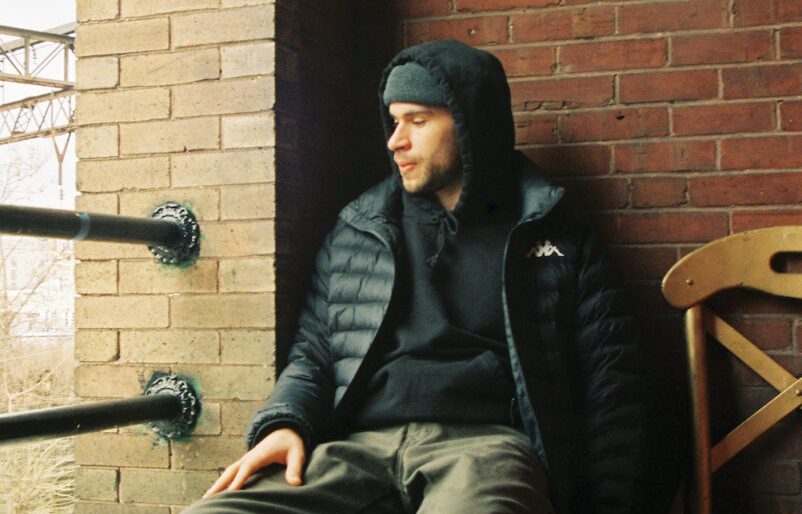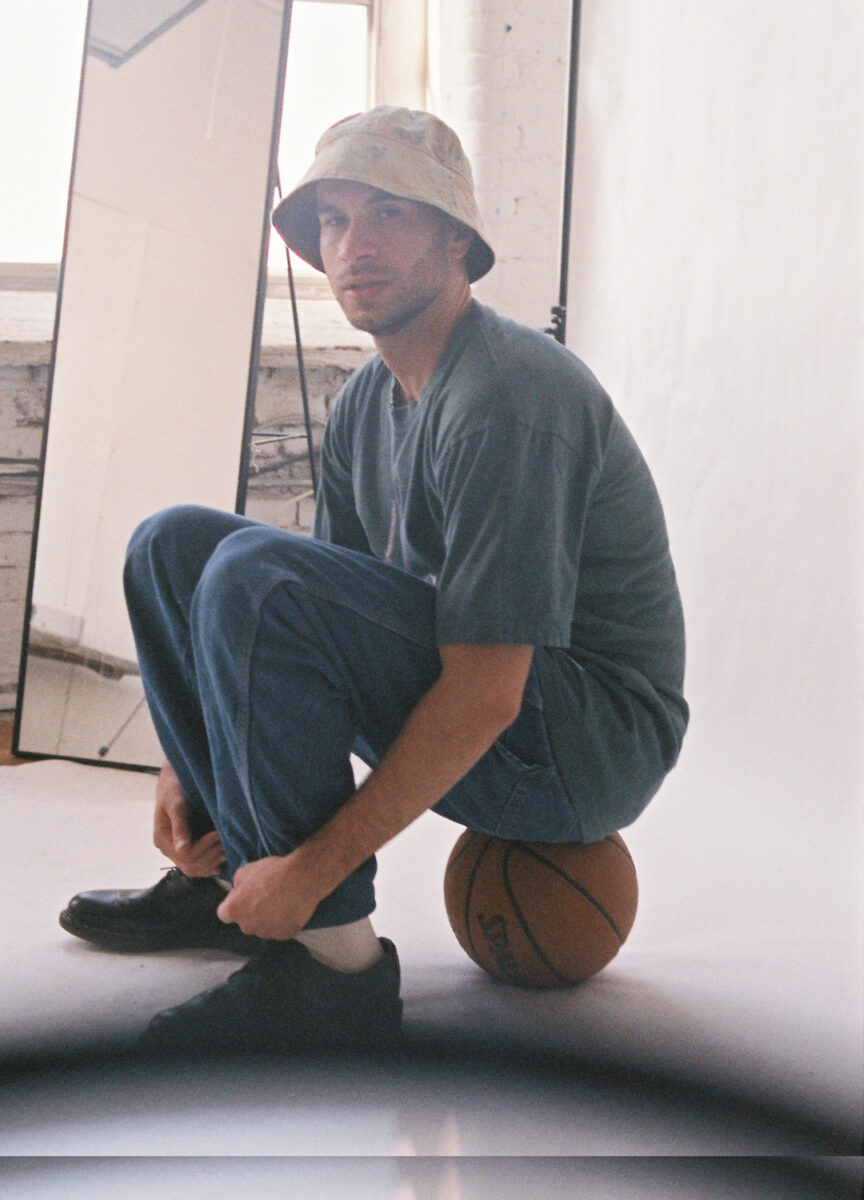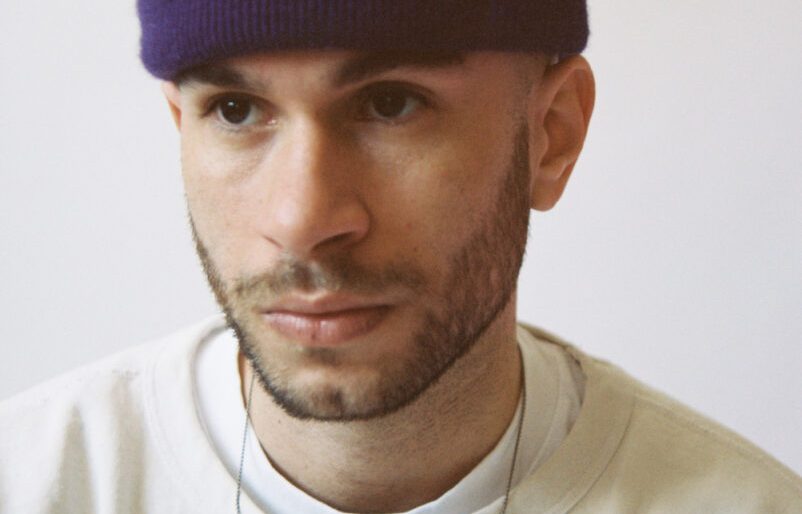TH: The phrase “pedazo de carne con ojo” appears in your track “Mind Racing.” Can you explain the significance of the phrase and why you chose to perform under this name?
SP: The literal translation is like, piece of meat with eyes. But it’s a common expression in Latinx culture, specifically Dominican – at least that’s my understanding, my mom said it to me all the time – and it means you’re being a smartass or a troublemaker, something like that. So she would call me that all the time, pedazo de carne con ojo. I actually wasn’t gonna name this project that at all, I was gonna name it this other name, I was ready and right when I was about to upload it to distribute, I noticed that someone else had taken the name, and it was someone doing rap music and I was like, F*ck this is gonna be confusing. And my Instagram handle was always @pedazodecarneconojo – this is something my mom called me my entire life, I would say that’s the closest thing I have to a nickname – so I was talking to somebody and they were just like, Run that! And I was like, you’re right, so I just went with it. Using it in the songs was this kind of third-person speak, speaking to the name. But also, I just wanted to have call-backs; I like the idea of hearing something over and over. Like “dun dun” for example, there’s that motif of dun dun, a kind of vocal motif, and that’s the thing with the name, pronouncing myself within the music.
TH: What music served as your early inspiration for Pedazo De Carne Con Ojo?
SP: It was definitely a lot of bachata and merengue and salsa music, all the stuff that my mom was playing in the house when I was growing up. Like Anthony Santos, Johnny Ventura, Celia Cruz, Hector Lavoe, who I’m a huge fan of – a lot of music from the Caribbean. That was definitely the impetus to this and I wanted to pull from that. I knew I was interested in sampling music and I didn’t want to take from other cultures, and I felt, what is my way that I can do this while being respectful of others, and so, let me do the music that I grew up listening to. And also, I’d been making punk music, or indie music, or indie “rock,” all these genres that aren’t bachata and merengue, so my family hasn’t necessarily been super supportive – not in a negative way, they just don’t really get it – and so I wanted to make something I was hoping my family would be interested in. And luckily they were! It’s weird, but they kind of like it more now.
TH: What experiences or feelings inspired your lyrics on Dun Dun?
SP: It’s funny because it’s such a quarantine album, but a good amount of those songs were written before the quarantine or the pandemic ever started. It worked out that way where this feeling of isolation ended up being this universal thing for everybody. It just was; we all were going through it. I think isolation, a perpetual fear of poverty, fear of not being a good counterpart in relationships – not only romantic ones but friendships and social relationships, period. There’s an anxiety for me there about not being a good enough friend or partner. I think those were the feelings. And experiences were just the pandemic, and life stuff – there’s a lot; it’s in the songs. Pretty dark stuff, you know what I mean? I get sad sometimes, so… [Laughs]
I definitely hear it as a sad album, and it’s funny because I really was trying to not do that anymore. That’s kinda been my thing, making bummy songs, and Pedazo started in a lot of ways to be a little brighter. So if you listen to the record before Dun Dun, it’s much brighter. It touches on gnarly topics, but it’s definitely brighter and it’s just more fun. But Dun Dun, it was hard not to talk about it; I felt like I was being fake if I was making anything that didn’t acknowledge the kind of grief we were all going through. You know a lot of people died, a lot of people lost their jobs, a lot of people felt lost, so I begrudgingly tapped into that. [laughs]
I wish I could be funny or silly. I love people like Zack Fox, people who in music can be really funny. Like Lil Wayne can have these little quips that are f*cking hilarious – I wish I could do that. I think there are songs that can be a little goofy; there was someone who wrote about the songs being goofy, and I thought that was really interesting. I had never heard anyone say it, and I think initially I was like, Man what the f*ck! But then I sat with it and I was like, nah, that kinda makes sense, because I was trying to let it be goofy. I was trying to let myself be a little less brooding and more just enjoying life. And I think there are definitely funny moments and funny lines in songs, and I don’t know that it all is, but I’ve tried to incorporate goofy stuff, or even it just comes off that way unknowingly. And I think it’s kinda cool. I think comedy is one of, if not the most difficult art form that we have. It’s really hard to be funny, in my opinion.
TH: How has your process for recording your albums worked? Are there certain pieces of hardware or software you always use?
SP: It’s starting to evolve. When I first started, it was just my computer and a MIDI keyboard that I was using as a MIDI controller, and I did everything on that, so drums, sampling, any chords like strings or synths. And actually for the first couple of projects, I was very adamant about not using virtual instruments, or any instruments except the sampler – and I use Ableton. Cause I really love the idea like, Okay, if I need a synth, then I need to listen to a bunch of music and find a synth sound that I like and use that. The first two records, except maybe a shaker or something, everything is pretty much sample-based, even if you hear a synth chord or an organ or anything then I’m pulling from something else. In Dun Dun I opened it up a little more and I bought a multi-pad like a drum pad, like an SPD – it’s not the SPD but similar to that – and started doing that more because I liked being able to use drumsticks and really build drum patterns that way. It’s pretty difficult to do the drums I was thinking of with a MIDI keyboard. And now there’s a microphone, a drum pad, I bought a piano too so trying to use that more, that’s a later development. The piano, and I’m back playing guitar which I haven’t done in a few years, those things will show up on the next stuff I’m working on, but for what I’ve done already it’s honestly mostly just been computer and whatever MIDI controller I could get my hands on.


